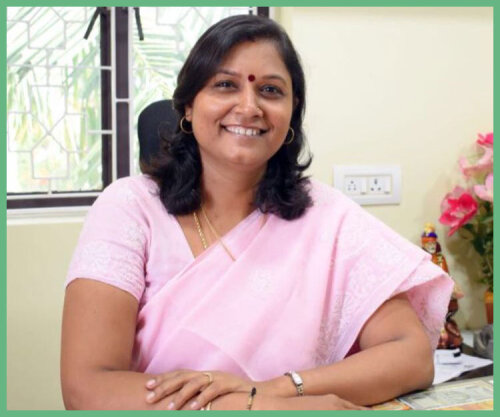Best Nonprofit & Charitable Organizations Lawyers in Chennai
Share your needs with us, get contacted by law firms.
Free. Takes 2 min.
List of the best lawyers in Chennai, India
About Nonprofit & Charitable Organizations Law in Chennai, India
Nonprofit and charitable organizations in Chennai, India, play a vital role in addressing various social, educational, cultural, and environmental issues. These organizations are typically registered under specific legal frameworks that vary based on their purpose and structure. The primary laws governing nonprofits in India include the Societies Registration Act of 1860, the Indian Trusts Act of 1882, and the Companies Act of 2013 (Section 8 Companies). In Chennai, as in other parts of India, nonprofits are also subject to financial regulations under the Foreign Contribution Regulation Act (FCRA) and the Income Tax Act, which provide guidelines for their funding and tax obligations.
Why You May Need a Lawyer
Navigating the legal landscape of nonprofit and charitable organizations can be complex. You may require a lawyer in situations such as:
- Setting up a nonprofit organization: To choose the appropriate legal structure and ensure compliance with registration requirements.
- Drafting and reviewing governance documents: Such as constitutions, bylaws, and trust deeds.
- Complying with funding regulations: Particularly when dealing with foreign contributions or large donations.
- Tax exemption and compliance: Ensuring eligibility for tax exemptions and fulfilling reporting obligations under the Income Tax Act.
- Addressing legal disputes: Such as issues with donors, beneficiaries, or regulatory authorities.
- Guidance on mergers or closures: Understanding legal procedures for merging with another entity or winding up operations.
Local Laws Overview
Several key legal aspects are critical for nonprofit and charitable organizations operating in Chennai:
- Registration: Organizations can register as a society under the Tamil Nadu Societies Registration Act, as a trust under the Indian Trusts Act, or as a Section 8 company under the Companies Act.
- Funding and Financial Management: Compliance with FCRA and local regulations regarding foreign contributions and maintaining proper financial records is vital.
- Taxation: Nonprofits must navigate the provisions of the Income Tax Act to avail tax benefits, requiring periodic filings and audits.
- Governance: Adhering to governance standards involves compliance with internal regulations outlined in governing documents and external regulatory requirements.
Frequently Asked Questions
What are the types of nonprofit organizations I can establish in Chennai?
In Chennai, you can establish a society, trust, or a Section 8 company, each having its own registration process and regulatory requirements.
What are the tax benefits available for nonprofit organizations in Chennai?
Nonprofits can avail tax exemptions on income under sections such as 11 and 12 of the Income Tax Act, if conditions specified under Section 80G are met.
How can a nonprofit receive foreign contributions legally?
To receive foreign contributions, a nonprofit must comply with the Foreign Contribution Regulation Act (FCRA) and register with the government.
What documents are required for registering a society in Chennai?
Documents required include a memorandum of association, the rules and regulations of the society, and details of the governing body members.
How do governance laws affect nonprofits in Chennai?
Governance laws mandate proper management, accountability, and transparency, often requiring documentation like meeting minutes and financial records.
Are there any specific audit requirements for nonprofit organizations?
Yes, nonprofits are required to maintain detailed accounts and undergo periodic audits as per the Income Tax Act and other applicable regulations.
Can a nonprofit organization be converted into a for-profit entity?
Converting a nonprofit into a for-profit entity is generally not permissible as it contradicts the original purpose of benefiting the public.
Is it compulsory to file annual returns for a nonprofit in Chennai?
Yes, filing annual returns is necessary under the relevant legislation, such as the Societies Registration Act or Companies Act, depending on the entity type.
What legal documentation is necessary for obtaining donations?
A nonprofit should issue receipts for donations and maintain records as stipulated by tax authorities to ensure compliance and donor accountability.
How can a nonprofit manage legal disputes in Chennai?
Engaging a lawyer experienced in nonprofit law can be crucial in mediating disputes and navigating legal proceedings effectively.
Additional Resources
For more information and guidance, consider consulting these resources:
- The Registrar of Societies, Tamil Nadu
- The Charity Commissioner’s Office
- The Institute of Chartered Accountants of India for financial regulations
- Ministry of Corporate Affairs for Section 8 Company information
- NGOs India platform for policy updates and networking
Next Steps
If you find yourself in need of legal assistance for a nonprofit or charitable organization in Chennai, consider the following steps:
- Identify the specific legal needs: Clarify whether you need assistance with setup, compliance, tax issues, or disputes.
- Seek referrals for reputable lawyers with experience in nonprofit law in Chennai.
- Prepare and organize all relevant documents and information before consultations.
- Engage with a legal professional who understands local laws and regulations applicable to nonprofit organizations.
Lawzana helps you find the best lawyers and law firms in Chennai through a curated and pre-screened list of qualified legal professionals. Our platform offers rankings and detailed profiles of attorneys and law firms, allowing you to compare based on practice areas, including Nonprofit & Charitable Organizations, experience, and client feedback.
Each profile includes a description of the firm's areas of practice, client reviews, team members and partners, year of establishment, spoken languages, office locations, contact information, social media presence, and any published articles or resources. Most firms on our platform speak English and are experienced in both local and international legal matters.
Get a quote from top-rated law firms in Chennai, India — quickly, securely, and without unnecessary hassle.
Disclaimer:
The information provided on this page is for general informational purposes only and does not constitute legal advice. While we strive to ensure the accuracy and relevance of the content, legal information may change over time, and interpretations of the law can vary. You should always consult with a qualified legal professional for advice specific to your situation.
We disclaim all liability for actions taken or not taken based on the content of this page. If you believe any information is incorrect or outdated, please contact us, and we will review and update it where appropriate.











